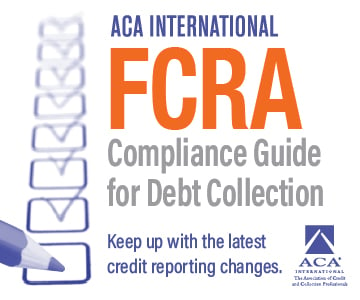 Proposition 209 is permitted to take effect without additional guidance from the courts, judge says.
Proposition 209 is permitted to take effect without additional guidance from the courts, judge says.
12/22/2022 12:40 P.M.
3.5 minute read
The Maricopa County Superior Court has issued its ruling in the legal challenge to Arizona’s new debt collection law, the Arizona Predatory Debt Collection Act, otherwise known as Proposition 209.
In the ruling, the Arizona state court determined that the plaintiffs—including the Arizona Creditors Bar Association (ACBA)—have legal standing to challenge the law but that the plaintiffs’ quibbles with the language of Proposition 209 do not warrant injunctive relief preventing the law from taking effect or declaratory relief limiting or interpreting the language of the law.
Proposition 209 passed via a ballot initiative in the Nov. 8 midterm elections. On Dec. 5, led by the ACBA and Protect Our Arizona, a political action committee supported by the accounts receivable management industry and ACA International, the plaintiffs filed a constitutional challenge seeking to prevent Proposition 209 from taking effect.
In addition, or in the alternative, the plaintiffs sought declaratory guidance from the court as to the meaning of the law’s savings clause.
After an initial hearing on Dec. 7, during which the court granted a temporary restraining order, the court ordered and convened an evidentiary hearing on Dec. 16. On Dec. 22, the court issued its ruling (PDF) on the plaintiffs’ various requests for injunctive and declaratory relief and on the state’s motions to dismiss. In that ruling, the court found that:
- The plaintiffs do have standing to bring the legal challenge against Proposition 209.
- The legal challenge to Proposition 209 was “ripe,” meaning that it could be adjudicated by the court under constitutional principles of justiciability.
- Proposition 209, although complex, is not unconstitutionally vague. (As the court put it: “Legislation is not vague simply because it is new and untested.”)
- Proposition 209 does not violate due process merely “because it is susceptible to more than one interpretation.”
- “Proposition 209 should be permitted to take effect, without guidance or restriction from the [c]ourt.”
- “The language in the legislation, and in particular the [s]avings clause, is susceptible to common understanding (and actually mirrors the language of several existing laws) and therefore is not facially unconstitutional.”
With those findings in place, the court denied all requests for relief that the plaintiffs had sought in their verified complaint; vacated its Dec. 7 temporary restraining order that had, until now, prevented Proposition 209 from taking effect; and entered a final judgment in the state’s favor.
How Did We Get Here?
The lawsuit in Arizona Superior Court and Maricopa County (PDF) asked the court to invalidate Prop 209 or—failing complete invalidation—to provide the plaintiffs with specific guidance not included in the law.
Proposition 209 set new exemption limits on property subject to debt collection and decreased the portion of a judgment debtor’s income that is subject to garnishment. Voters were assured under Propositions 209’s savings clause that the law would not affect any debt related to any current contracts because the act “would be applied prospectively only.”
The plaintiffs sought clarification of the effective date and argued that, based on the language of the savings clause, contracts entered before Dec. 5, 2022, should use the previous exemption rates.
What’s Next?
As written, the law would add protections against wage garnishment, decreasing the portion of a judgment debtor’s weekly disposable earnings that can be withheld pursuant to a wage garnishment to the lesser of 10% of disposable earnings or 60 times the highest applicable federal, state, or local minimum wage.
In addition, Proposition 209 increased protections for judgment debtors’ real property, motor vehicles, and household furnishings, goods, and appliances.
It will reduce maximum interest rates on medical debt from 10% to 3% annually, increase the amount of certain assets exempt from debt collection, annually adjust exemptions for inflation beginning 2024, and allow courts to reduce the amount of disposable earnings garnished in cases of extreme economic hardship.
Of note, while it will limit the interest rate on medical debt, the rest of the items in the law apply to all consumer debt. It also raises homeowners’ homestead exemption from $150,000 to $400,000.
ACA has helped support the plaintiff’s legal challenge through an Industry Advancement Fund grant. The plaintiffs are reviewing the court’s decision and considering next steps.
If you have executive leadership updates or other member news to share with ACA, contact our communications department at [email protected]. View our publications page for more information and our news submission guidelines here.
 Proposition 209 is permitted to take effect without additional guidance from the courts, judge says.
Proposition 209 is permitted to take effect without additional guidance from the courts, judge says.













